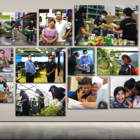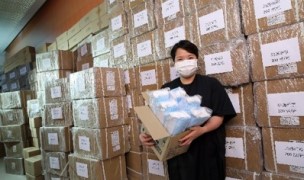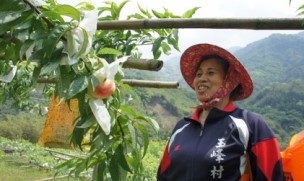A filial daughter behind bars sends care to her elderly parents with a little covert help from DBS
The role of a bank is traditionally seen as affording financial assistance to its customers, be it a loan to purchase that dream home or an investment package to help one prepare for retirement.
But earlier this year, DBS Hong Kong embarked on a transaction that was less about dollars and cents, and more about filial piety.
It all started when Tricia Kwong, from DBS Hong Kong’s Group Strategic Marketing and Communications received a handwritten letter in May.
At first glance, the document appeared to be from a non-governmental organisation inquiring about the bank’s recently unveiled “Care More” initiative, which taps into a SGD 10.5-million DBS Stronger Together Fund to help the elderly and vulnerable groups in the region who have been deeply affected by Covid-19.
“My heart melted”
But after taking a closer look at the document, Tricia’s heart melted.
The letter was actually written by an inmate who was anxious about how her elderly parents were coping with the pandemic. As such, she hoped that the bank could, through this new initiative, help care for her parents.
Moved by the inmate’s good intentions, Tricia immediately set out on a mission to fulfil this unusual request. The problem, however, was that the inmate had only left behind her first name, her mother’s contact details, and a code with a series of numbers.
Tricia proceeded to contact the bank’s call centre, hoping that they could contact the parent and express the bank’s interest to help
Fiona Chau, who is the Section Head of the bank’s call centre in Technology & Operations, was left slightly bamboozled.
“The call centre only handles general customer enquiries. I don’t think we’ve ever received a call from our own colleagues, [moreover] one containing such a highly unusual request.”
Fiona’s teammate, Esther Lau, promptly approached the mother, who agreed to have a social worker from the Senior Citizen Home Safety Association (SCHSA) contact her for the delivery of care packs consisting items such as food and other essentials.
But a few days later, Fiona was alerted by SCHSA that the mother had suddenly declined aid.
Bridging the distance with ingenuity
“The mother told the social workers that her husband was a proud man who, despite their financial problems, would refuse to receive aid from other people,” says Esther.
“This was when we knew we had to come up with a different plan, one where the aid provided is not as conspicuous.”
The solution? Cash coupons slipped into the family’s mailbox.
To ensure the vouchers were useful, the team analysed the area where the parents lived to determine the type of vouchers that could be used at supermarkets and eateries in the vicinity. This way, the elderly parents could conveniently utilise the vouchers without the need to travel far.
After learning of this new arrangement, the mother gladly obliged, and this became a “little secret” between her and the bank.
But it was hardly the end of this unexpected relationship. Communication lines remain open with Tricia urging the mother to contact her if she requires any more help in the future.
To complete the “mission”, the team decided to write back to the inmate, informing her that her wishes have been fulfilled. Alas, they had to call a couple of prisons in Hong Kong in order to locate this individual, as she did not provide her contact details. Fortunately, the team struck gold on their second call.
“I’ve been very moved by this encounter. I’m proud of everyone at the bank who has contributed to making this happen,” says Tricia.
“Such cases allow us to demonstrate how we’re not just a bank, but an institution committed to making meaningful connections with the local community.”





